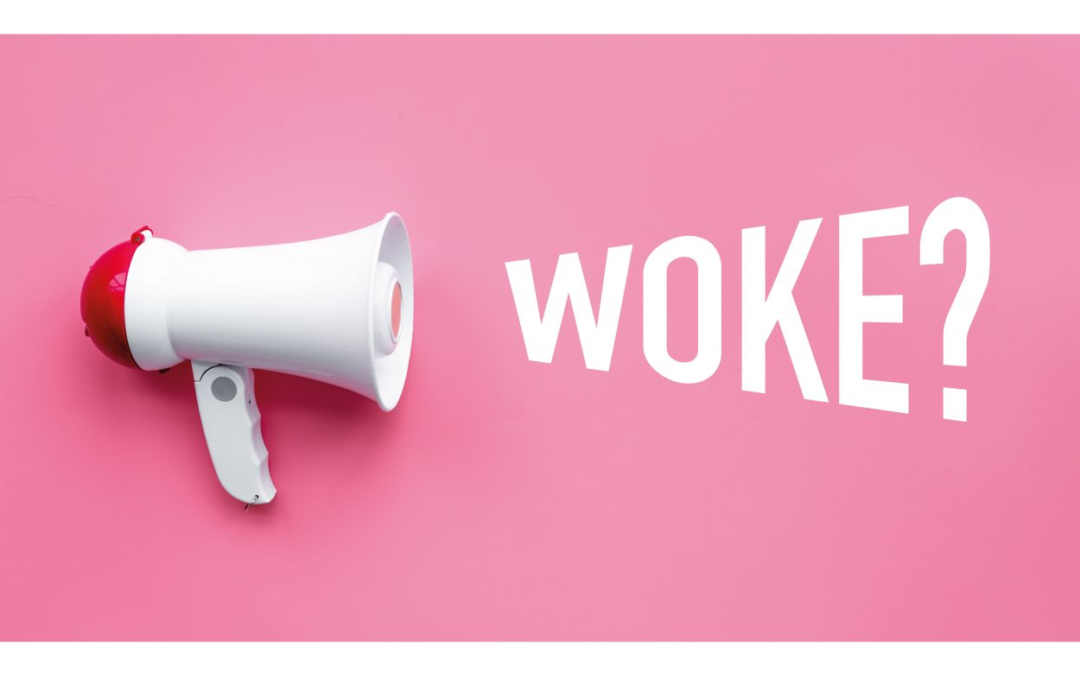The Great Awokening is gathering speed. Cancel Culture, it seems, goes from strength to strength. Where from, and where to?
Cancel Culture galore!
Love it or hate it, ‘Woke’ has an undeniable impact. To list a few recent stories: Seasoned New York Times reporter Donald McNeil fired for quoting a racial slur in conversation with high school students on a trip sponsored by his newspaper; six Dr. Seuss books were discontinued by their publisher because an advisory committee flagged racist images within them; the incoming editor in chief of Teen Vogue got into hot water for tweeting anti-Asian remarks 10 years ago (when she was a teenager); the host of the TV show The Bachelorette was pushed out because he defended a contestant who, according to CNN, “was reportedly photographed at an antebellum plantation-themed fraternity formal in 2018.”
The surge of censoriousness isn’t just taking place in the worlds of journalism, media, and publishing. It’s leaving lasting marks on a wide range of universities, producing anger at elite prep schools, inspiring sweeping decisions by public school boards, and having a strong influence on how corporate departments of human resources and government agencies lay down expectations for employees and otherwise deal with members of their staff.
Trend
Where did this trend come from, and where might it be going? As we might expect from a story having a big impact on the lives and livelihoods of writers, there are numerous explanations on offer. The most common takes its cue from academic champions of the woke trend who describe their scholarship as “critical race theory.” That has led critics, especially conservative ones, to treat the woke movement as a form of “critical theory,” derived from Cultural Marxism developed and promulgated by academics affiliated during the middle decades of the 20th century with the Frankfurt School. Critical theorist Herbert Marcuse is often named as a progenitor of woke ‘progressivism’.
Back in 1965, Marcuse published his essay on “repressive tolerance” that went on to influence and inspire radical professors of law and African-American studies, who then influenced and inspired Millennial and Gen-Z students at elite universities, who now form online mobs that demand retribution against anyone who fails to advance a far-left political agenda.
Does it work?
The problem with this account is that social change doesn’t work this way, with ideas spreading like a viral contagion that infects (and corrupts) large swaths of a culture once it is unleashed. (Some champions of woke ideas make precisely this assumption about the viral character of ideas they don’t like, using that to justify “cancelling” people who supposedly make politically dangerous arguments.) Yes, authors may exert a powerful influence on the world, but the way their ideas are received, interpreted, and deployed is a function of a many complex interactions between those ideas and other influences in the culture’s past and present.
This isn’t to deny certain similariities among the ideas of Karl Marx, Marcuse, Kimberlé Crenshaw, Richard Delgado, Ibram X. Kendi, and Robin DiAngelo, But it is to say that pointing to those resemblances doesn’t tell us very much about why the ideas contained in their writings (which were formulated in the mid-19th century and first revised for a modern American audience 56 years ago) have caught on today.
Successor ideology
Where does that leave us in trying to understand the woke revolution? Author Wesley Yang’s description of woke ideas and arguments as liberalism’s “successor ideology” is helpful. That’s because the phrase manages to capture the trend’s origins in liberal ideas of meritocratic fairness, while signalling that it has moved beyond liberal assumptions and aspirations to become a distinct ideology. Beyond that, we see three potentially fruitful paths for further exploration of where the successor ideology comes from, and where it might be going.
International Crusade for Justice: The successor ideology is no longer simply an American phenomenon. When President Emmanuel Macron blames the spread of woke ideas in France on the insidious influence of USA academics, he reproduces the error of American conservatives who cast aspersions on German philosophers. But the rise of cancel culture abroad demands its own explanation.
Religion: It’s become a cliché to describe impassioned social movements as forms of “secular religion.”, but there’s something in it! The very name “woke” is a play on the Christian Great Awakenings that swept across the United States at various times, revitalizing old faiths and giving birth to new ones. And as Yang and other thoughtful critics of this have noted, there are sociological connections linking the political sensibility of woke activists, ensconced within elite American institutions, to the old liberal Protestant mainline.
Business: In a pair of highly suggestive essays for City Journal, Jacob Howland, an emeritus professor of philosophy at the University of Tulsa, has explained how the school has been remade in recent years, with its commitment to the liberal arts abandoned in favour of an outlook of “corporatist progressivism.” Shuttering humanities majors in favour of technical training, mandating “woke” reforms of the remaining curriculum, and pursuing profits for the wealthy financiers bankrolling the university — these moves have reinforced one another, with the embrace of outspoken left-wing anti-liberalism allowing those bulldozing the liberal arts to claim the moral high ground. Much more work remains to be done in analyzing the rise of “woke capital” and the part it plays in fostering and encouraging current trends, but Howland’s writing gives us a good start.
What can account for the appeal of these ideas in other cultural contexts? One possibility is that “successor ideology” answers a yearning among idealistic young people to devote themselves to a grand spiritual crusade in the name of a transcendent ideal of justice. It does this at a moment when the only political ideal on offer is democracy and its supposed ‘moral’ counterpart; egalitarianism or equality.
Whereas liberalism treats equality as one valuable ideal among many (including liberty, solidarity, and piety) and seeks a pluralistic balance among them, those in the grip of the “successor ideology” find this aspiration toward equanimity an intolerable compromise with moral evil. Moreover, they view their own privileges — their own part in contributing to liberalism’s failure to achieve an egalitarian ideal — as a source of disgust, guilt, shame, and self-loathing. Those emotions are powerful because they are painful to endure.
All this leads those suffering from this form of guilt to create scapegoats — a person or group perceived to be responsible and so suffer just punishment, allowing the sins of the punisher and the punished alike to be expiated!
Woke and Christianity
At the end of the day Woke is no huge surprise to Christian witness. Woke is the successor to, and semi-logical development of, political correctness. We comment that normative biblical Christianity has already addressed the real concerns raised by “wokedom” – and done this for the past 2000 years. Ultimate and eternal justice is provisioned by God (the Father) through God (the Son). It is Jesus who is the ultimate guarantor or justice and arbiter for what justice truly means. Wokedom probably represents yet another battleground for Christian witness as it conflates “victimocracy” with the creation and steady evolution of an ‘oppressor class’. Successor ideology is surely another attempt by a society determined to oppose its creator God, to salve its collective conscience, whilst leaving true victims still suffering in silence …..


Recent Comments